Confirmed plenary speakers for CCGH 2021 include:
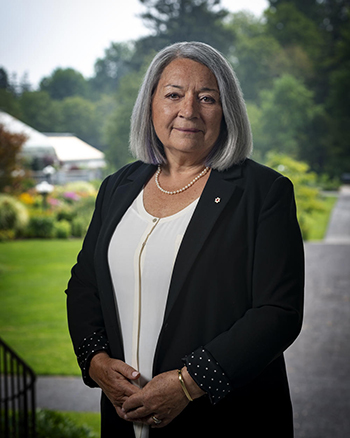 Her Excellency the Right Honourable Mary May Simon
Her Excellency the Right Honourable Mary May Simon
Governor General of Canada
Her Excellency the Right Honourable Mary May Simon was sworn in on July 26, 2021, as Canada’s first Indigenous governor general. She is the 30th governor general since Confederation.
Mary May Simon was born on August 21, 1947, in Kangiqsualujjuaq, Nunavik (Quebec), to Nancy May (Angnatuk-Askew), her Inuk mother, and Bob Mardon May, her father, who moved to the Arctic to work for the Hudson’s Bay Company.
Ms. May Simon gained national and international recognition for her work on Arctic and Indigenous issues and for her efforts in advocating for Inuit rights, youth, education and culture.
Ms. May Simon began her career as a radio broadcaster with the CBC Northern Service (now CBC North) in the 1970s. Following this, she held a series of executive positions with the Northern Quebec Inuit Association (now Makivik Corporation) and Inuit Tapiriit Kanatami, which centred on negotiating the first land claims agreement in Canada, the James Bay and Northern Quebec Agreement. As president of Makivik Corporation, she was directly involved with the implementation of the agreement, along with the protection and promotion of Inuit rights.
Along with fellow Indigenous leaders, Ms. May Simon was also actively involved in the negotiations leading to the 1982 patriation of the Canadian Constitution, which formally entrenched Aboriginal and treaty rights in the supreme law of Canada.
She later joined the executive council of the Inuit Circumpolar Conference (now the Inuit Circumpolar Council), for which she served two terms as president. In addition, she was commissioner of the Nunavut Implementation Commission and policy co-director of the Royal Commission on Aboriginal Peoples.
From 1994 to 2003, Ms. May Simon served as ambassador for Circumpolar Affairs, becoming the first Inuk to hold an ambassadorial position. During this time, she negotiated the creation of the Arctic Council. Concurrently, she served as ambassador of Canada to Denmark from 1999 to 2001.
Beginning in 2006, Ms. May Simon served two terms as president of Inuit Tapiriit Kanatami. In 2008, in the House of Commons, she delivered a response on behalf of Inuit to the formal apology on residential schools. She is the founder of the Arctic Children and Youth Foundation and, until 2014, she was the chairperson of the National Committee on Inuit Education.
In 2017, as the Minister’s Special Representative, Ms. May Simon delivered a report to the Minister of Indigenous and Northern Affairs on A new Shared Arctic Leadership Model, setting the stage for important policy and program development in support of the Arctic and its residents.
Among other distinctions, Ms. May Simon is an Officer of the Ordre national du Québec. She is also a recipient of the Governor General’s Northern Medal, the Gold Order of Greenland, the National Aboriginal Achievement Award, the Gold Medal of the Canadian Geographical Society and the Symons Medal.
Upon becoming governor general, Ms. May Simon was promoted by Her Majesty The Queen as Companion of the Order of Canada (C.C.), and invested as Commander of the Order of Military Merit (C.M.M.) and Commander of the Order of Merit for Police Forces (C.O.M.). Her Majesty The Queen is the Sovereign of these Orders.
Ms. May Simon plays the accordion and loves nature and berry picking. She is anaana (mother) to a daughter and two sons, anaanatsiaq (grandmother) to 12 children and amauq (great-grandmother) to four children. She also has three stepchildren from her marriage in 1994 to Mr. Whit Grant Fraser, former head of the Canadian Polar Commission, former executive director of Inuit Tapiriit Kanatami and a long-time former CBC journalist.
 Hon. Kwaku Agyeman Manu
Hon. Kwaku Agyeman Manu
Minister of Health, Ghana
Kwaku Agyeman Manu is a Member of Parliament (MP) for Dormaa Central in the Bono Region of Ghana. He has been MP for Dormaa West and Central for two terms and now serving his 3rd term.
He is a product of the University of Ghana where he had his Bachelor of Science Degree in Economics and Statistics. He also attended the London School of Accountancy where he chartered as a management accountant. He is an affable and astute politician and served in various leadership positions in Government between (2001-2009).
He served as Deputy Minister of Trade and Industry, Interior, Finance, Roads and Transport, Transport and Communication and also served briefly as the Ag. Chief Executive of the National Health Insurance Authority. He was elected an MP for Dormaa Central Constituency when his party went into opposition.
His leadership skills and competence made him the choice to be initially the Vice-Chairman and later as the substantive Chairman for the Public Accounts Committee of Parliament where he distinguished himself and excelled by unearthing several financial malpractices in Ghana’s Public Accounts.
He is recognised in the region as an executive member of the West African Association of Public Accounts Committee (WAAPAC), the Commonwealth Association of Public Accounts Committee (CAPAC) and the African Region Public Accounts Committee (AFROPAC).
Kwaku Agyeman Manu is a highly skilled professional and politician. He is the Minister for Health for the Republic of Ghana and also the Board Chairman for the Joint United Nations Programme on HIV/AIDS (UNAIDS) headquartered in Geneva. He has quite recently been elected as an alternate member of GAVI (Global Alliance for Vaccines and Immunisation)
Prior to taking up the position of a Deputy Minister in Former President Kufour’s administration, he was the Director of Finance for Toyota Ghana Co. Ltd.
 Seye Abimbola
Seye Abimbola
Utrecht University
Seye Abimbola is a health systems researcher who studies community engagement in governance, decentralised governance, and the role of governance in the adoption and scale up of health system innovations. He is the current (2020-22) Prince Claus Chair in Equity and Development at Utrecht University in the Netherlands, a senior lecturer in global health at the University of Sydney in Australia, and the editor in chief of BMJ Global Health.
 David Addiss
David Addiss
Task Force for Global Health
David Addiss, MD, MPH is Director of the Focus Area for Compassion and Ethics (FACE) at the Task Force for Global Health in Decatur, GA, USA (https://www.taskforce.org/face). After working in migrant health as a general medical practitioner, David studied public health at The Johns Hopkins University and worked as a medical epidemiologist at the US Centers for Disease Control and Prevention (1985-2006), where he focused on neglected tropical diseases and co-directed the WHO Collaborating Center on Elimination of Lymphatic Filariasis in the Americas. He directed the Fetzer Institute’s research program on science and spirituality (2006-2010) and led the Children Without Worms program at the Task Force (2011-2016). David is an adjunct professor at
the Rollins School of Public Health, Emory University .
 Dr. Fawad Akbari, MD, MPH
Dr. Fawad Akbari, MD, MPH
Regional Deputy Director of Programs and Partnerships (North America) Aga Khan Foundation
Fawad Akbari is a pediatrician and global health specialist with particular focus on health and nutrition, governance, fragility, and intersection across these themes. He is the Regional Deputy Director of Programs and Partnership with Aga Khan Foundation based in Canada, overseeing a diverse portfolio of multi-sectoral programs and partnerships, including Global Health and Nutrition initiatives since 2014. Before this, he worked for AKF Afghanistan, Cure International Hospital and Marie Stopes International in different managerial and technical leadership capacities in Afghanistan.
He has an M.D. degree from Kabul Medical University in Afghanistan, an MPH degree from the University of Liverpool in the UK, and a diploma from INSEAD's European Health Leadership Program in France. He has been involved with the United Nations Institute for Training and Research as a Fellow, Coach, Resource Person and Mentor in their Afghanistan and Iraq Fellowship programs since 2009.
He is an Adjunct Professor at the University of Ottawa, School of Epidemiology and Public Health, and a member of the WHO Collaborating Center for Knowledge Translation and Technology Assessment for Health Equity at the same University. His research interests are in health governance, community health, conflict, fragility and health, and health systems strengthening.
He also serves on the Board of Canadian Women for Women in Afghanistan (CW4W-Afg) and Canadian Afghan Association of Health Professionals (CAAHP), two Canadian charities that work in Afghanistan.
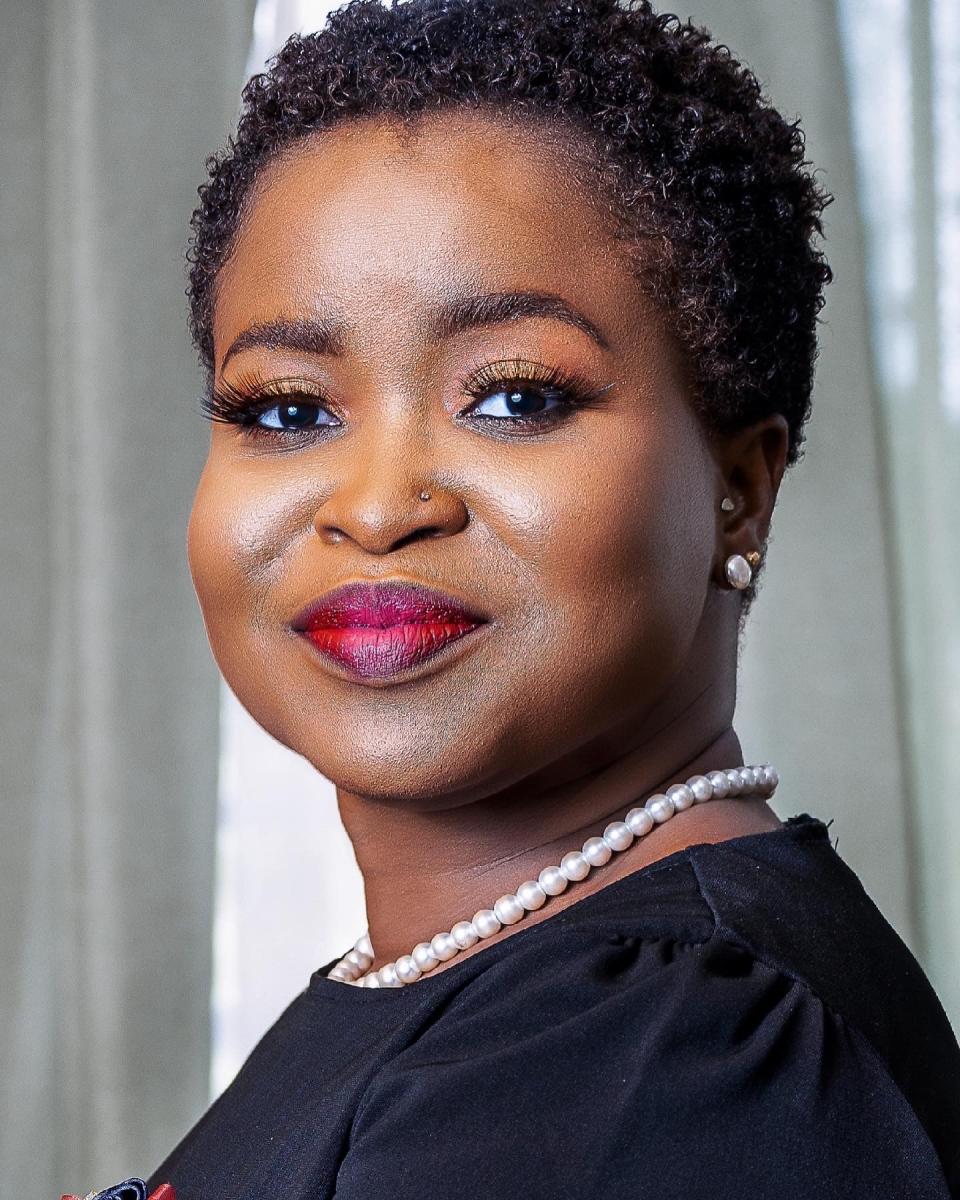 Emefa Apawu
Emefa Apawu
Multimedia Group limited. Ghana
Emefa Apawu has worked for the multimedia group of companies (MGL) which includes JOY 99.7fm, Joynews on TV, Adom fm, Asempa Fm, Joy Prime, Hitzfm, Luv 99.5fm, MyJoyOnline.com in Ghana from 2017 till date. Undoubtedly the leading media outfit with coverage in all 16 regions of Ghana MGL offers independent, fearless and credible Journalism.
She Anchors the flagship daily midday news and evening news program on Joy 99.7fm.
Her Sunday evening program created in March 2020 purposely to educate Ghanaians on Ghana’s management of the novel coronavirus led by government and the COVID-19 taskforce became a reference point for the Ghanaians populace who were at the time helpless. The platform was offered to government officials to provide hope and cure every misinformation.
The program was singled out for an award by the country’s Journalism Association. Emefa Apawu has a significant number of years in broadcasting which started in 2003. She also has a taste of the world of business following her short stint with the Ghana Chamber Of commerce and industries as the Public Relations and also the administrative secretary of a cable manufacturing company REROY cables..
When she is not Anchoring the news, or hosting she produces locally made Black mild and hot Pepper Sauce “Quiqui Shito” or designing and sewing African clothing for children.
 Hélène Carabin
Hélène Carabin
Université de Montréal
Dr. Hélène Carabin holds a Doctorate in Veterinary Medicine (1992) and a Masters of Veterinary Clinical Sciences (1994) from the Université de Montréal, as well as a Doctorate in Epidemiology from McGill University (1998). She is a Professor in the Department of Pathology and Microbiology of the Faculty of Veterinary Medicine and in the Department of Social and Preventive Medicine at the School of Public Health of the Université de Montréal.
Holder of the Canada Research Chair in Epidemiology and One Health, her research team is looking at evaluating the added value of the One Health approach to not only control zoonoses, but also to improve the health of humans and animals.
Dre. Hélène Carabin détient un Doctorat en Médecine Vétérinaire (1992) et une Maîtrise en Sciences cliniques vétérinaires (1994) de l’Université de Montréal, ainsi qu'un doctorat en épidémiologie de l’Université McGill (1998). Elle est Professeure titulaire au département de Pathologie et Microbiologie de la Faculté de Médecine Vétérinaire et au Département de Médecine Sociale et Préventive à l’École de Santé Publique de l’Université de Montréal.
Détentrice de la Chaire de Recherche du Canada en épidémiologie et Une seule santé, son équipe de recherche se penche sur l’évaluation de la plus-value de l’approche Une seule santé pour non seulement contrôler les zoonoses, mais aussi pour améliorer la santé des humains et des animaux.
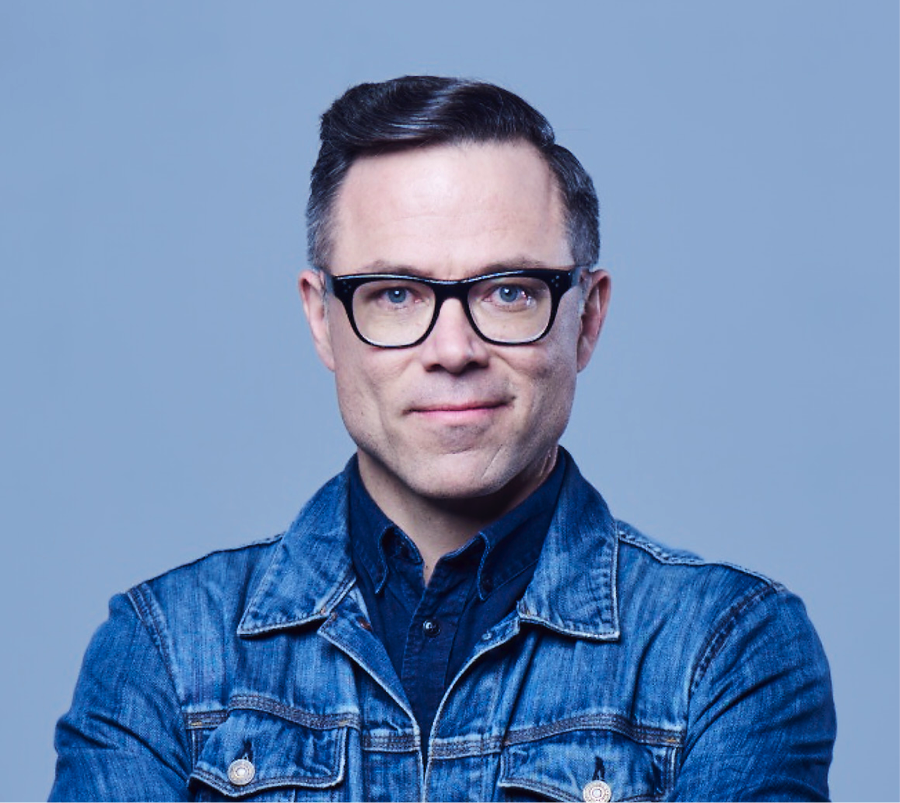 Timothy Caulfield
Timothy Caulfield
University of Alberta
Timothy Caulfield is a Canada Research Chair in Health Law and Policy, a Professor in the Faculty of Law and the School of Public Health, and Research Director of the Health Law Institute at the University of Alberta.
His interdisciplinary research on topics like stem cells, genetics, research ethics, the public representations of science and public health policy has allowed him to publish over 350 academic articles. He has won numerous academic, science communication, and writing awards and is a Fellow of the Royal Society of Canada and the Canadian Academy of Health Sciences. He contributes frequently to the popular press and is the author of two national bestsellers: The Cure for Everything: Untangling the Twisted Messages about Health, Fitness and Happiness (Penguin 2012) and Is Gwyneth Paltrow Wrong About Everything?: When Celebrity Culture and Science Clash (Penguin 2015). His most recent book is Relax, Dammit!: A User’s Guide to the Age of Anxiety (Penguin Random House, 2020) (US Title: Your Day, Your Way). Caulfield is also the host and co-producer of the award-winning documentary TV show, A User’s Guide to Cheating Death, which has been shown in over 60 countries, including streaming on Netflix in North America.
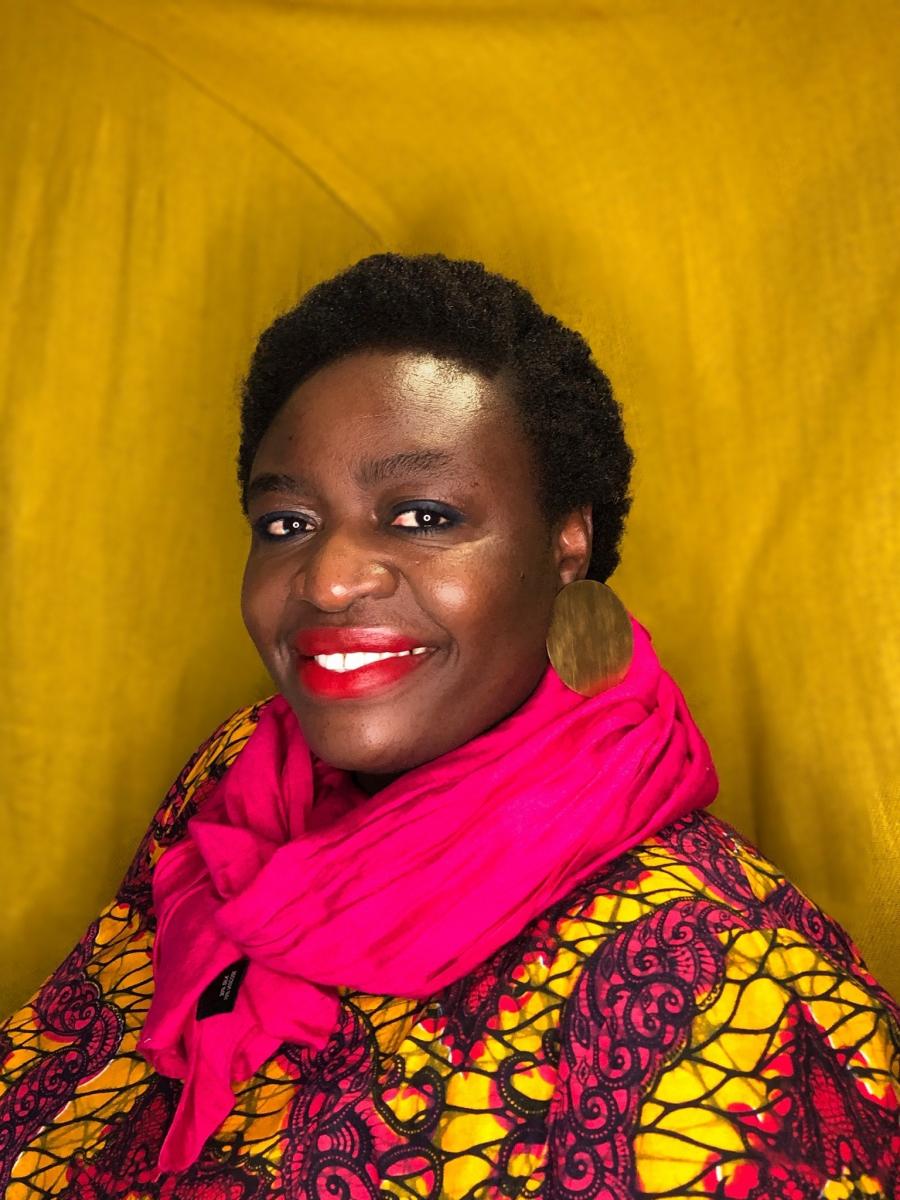 Thoko Elphick-Pooley
Thoko Elphick-Pooley
Uniting to Combat NTD, G7 Taskforce on Global Health
Thoko Elphick-Pooley is the Executive Director of Uniting to Combat NTD and Co-Chair of the G7 Taskforce on Global Health. Born and educated in Bulawayo, Zimbabwe in business administration and international development. Thoko has a wealth of experience in strategic leadership, partnership development and institutional relations. Currently working in Global health, in the field of Neglected Tropical Diseases, as Executive Director of the global secretariat for Uniting to Combat NTDs.
Uniting to Combat NTDs is a unique and powerful coalition of global health institutions, pharmaceutical companies, international non-governmental organisations, philanthropic organisations, donor countries and the governments of countries in which NTDs are endemic, working together to end the suffering caused by Neglected tropical diseases that affect more than a billion of the poorest people on the planet.
Prior to working at Uniting to Combat NTDs, Thoko was leading the institutional funding team at Sightsavers, overseeing the growth of institutional funding as a source of income for the organisation which grew from 8% in 2009 to over 40% by 2015. Prior to joining Sightsavers, Thoko worked for Education Action in London, Practical Action in the UK and Kenya, CIVICUS in South Africa and a number of organisations in Zimbabwe including for UNESCO.
Thoko is married to Jeremy and has a daughter named Jazz and a Son-in-law named Will. Thoko enjoys travelling with her family by road, and has navigated overland, cross-country trips for her family in East and Southern Africa and most recently driving from the UK to the Morocco desert and back over a three-week period.
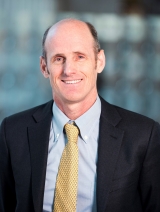 Tim Evans
Tim Evans
McGill University
Tim joined McGill University in September 2019, as the Inaugural Director and Associate Dean of the School of Population and Global Health (SPGH) in the Faculty of Medicine and Associate Vice-Principal (Global Policy and Innovation). He joins McGill after a 6 year tenure as the Senior Director of the Health, Nutrition and Population Global Practice at the World Bank Group. From 2010 to 2013, Tim was Dean of the James P. Grant School of Public Health at BRAC University in Dhaka, Bangladesh, and Senior Advisor to the BRAC Health Program. From 2003 to 2010, he was Assistant Director General at the World Health Organization (WHO). Prior to this, he served as Director of the Health Equity Theme at the Rockefeller Foundation. Earlier in his career he was an attending physician of internal medicine at Brigham and Women’s Hospital in Boston and was Assistant Professor in International Health Economics at the Harvard School of Public Health. Tim has been at the forefront of advancing global health equity and strengthening health systems delivery for more than 20 years. At WHO, he led the Commission on Social Determinants of Health and oversaw the production of the annual World Health Report. He has been a co-founder of many partnerships including the Global Alliance on Vaccines and Immunization (GAVI) as well as efforts to increase access to HIV treatment for mothers and innovative approaches to training community-based midwives in Bangladesh. Tim received his Medical Degree from McMaster University in Canada and was a Research and Internal Medicine Resident at Brigham and Women’s Hospital. He earned a D.Phil. in Agricultural Economics from University of Oxford, where he was a Rhodes Scholar.
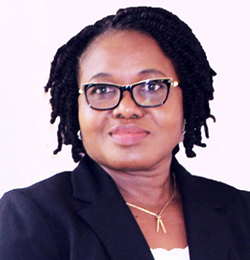 Margaret Gyapong
Margaret Gyapong
University of Health and Allied Sciences
Professor Gyapong has a disciplinary background in Medical Anthropology and Cultural Epidemiology with a PhD from the University of Basel. She is interested in research impact and has been a leader in this area bringing together the experiences of research institutions in Africa, Asia and Europe. In the last 25 years, Professor Gyapong has risen through the ranks of the research ladder to become a seasoned and internationally renowned Scientist. In 2005, she was Director of the Dodowa Health Research Centre. From humble beginnings at the Centre with few partners, Professor Gyapong attracted significant funders and grants to the institution on projects related to Health Systems, Neglected Tropical Diseases, Malaria, TB and Maternal and Child Health, Sanitation, Social Protection among others. She works at the intersection between health research and practice building research capacity at both national and international levels. Professor Gyapong leads the authorship and facilitation of workshops, task forces and demonstrates international leadership through service on several task forces, steering committees and working groups for the World Health Organization (Geneva), the Task Force for Global Health (Atlanta), the Standing Committee of the National Institute of Health (Washington DC) to mention a few. In Academia, Professor Gyapong holds professorial, adjunct professorial and senior lecturer positions at University of Health and Allied Sciences, Georgetown University, Brunel University and University of Ghana, and has supervised several masters and PhD students.
In January 2017, Professor Gyapong joined the University of Health and Allied Sciences in Ho Ghana where she is currently the Director of the Institute for Health Research and coordinates activities of the centre for health policy and implementation Research. In the same year, she was one of twelve women honoured by women in global health during the World Health Assembly to receive the first ever Heroines of Health award for her work drawing attention to the needs of women suffering from the consequences of Neglected Tropical Diseases. Professor Gyapong’s groundbreaking work in this field has driven much of our understanding of the gendered effects of NTDs, and female genital schistosomiasis. Recently, Professor Gyapong has received several noteworthy grants. She leads a Healthcare Utilisation Study to assess the rollout of the RTS,S malaria vaccine in Ghana (PATH) an IDRC grant on maternal and Adolescent health and in the final stages of EDCTP grant entitled, “The SAVING Project” to build capacity to address implementation challenges for Sustainable Access of New Vaccines in Ghana.
She is a reviewer and associate editor for a number of international journals and has 94 publications to her credit.
 Richard Jock
Richard Jock
Chief Executive Officer, First Nations Health Authority
Richard Jock is a member of the Mohawks of Akwesasne and serves as the Chief Executive Officer for the First Nations Health Authority.
Richard's portfolio includes Health Benefits, policy, planning, engagement, service improvements/integration, investment strategies and regional partnership implementation. His position also provides leadership for the building, functioning and implementation of strong partnerships within the First Nations health governance structure and within the health system more broadly.
Richard has worked for the past 25 years for First Nations organizations and the federal government, including numerous positions in the health field. Immediately prior to joining the FNHA, he held the post of Chief Executive Officer for the Assembly of First Nations (AFN). Among his other professional roles, Richard has held senior leadership positions at Norway House Health Services Incorporated, Health Canada, the National Aboriginal Health Organization and Mohawk Council of Akwesasne.
Richard is committed to his wellness and challenges himself to stay active and spend time outdoors. He wears his FitBit daily, rarely missing his 10,000 steps, and enjoys playing racquetball in his spare time.
 Dr Rozina Karmaliani
Dr Rozina Karmaliani
PhD, MScN, MPH, RN, RM
Dean and Professor, School of Nursing and Midwifery
Professor, Department of Community Health Sciences
Associate faculty, Institute for Global Health
and Development Associate faculty, Brain and Mind Institute
The Aga Khan University, Pakistan
Professor Dr. Rozina Karmaliani is a longtime prominent member of the Aga Khan University, AKU, being the first alumna to become Dean of the AKU School of Nursing and Midwifery, AKU-SONAM, in 2020. Besides her current role as Professor and Dean at AKU-SONAM, she also serves as faculty member in multiple entities at AKU including the Medical College's department of Community Health Sciences, Institute for Global Health and Development and the newly minted Brain and Mind Institute.
Dr. Karmaliani also holds the Khatijabai Mohan Manji Dharolia endowed Professorship. Before taking on the deanship in 2020, she has held various leadership positions in the School and has played a key role in establishing the School’s undergraduate and graduate programmes.
She has been steering AKU-SONAM to use its institutional excellence to advance nursing, and to engage and develop leaders and educators in healthcare. Besides Pakistan, she has worked for the development and promotion of higher education in nursing in East Africa, Afghanistan, Syria and Egypt, through active collaboration with partners in government and non-government organisations.
Dr. Karmaliani has a PhD in Nursing; Master of Public Health, and Master of Science in Nursing from the University of Minnesota; Bachelor of Science in Nursing from AKU and diplomas in Midwifery and Nursing from the Aga Khan Health Services and AKU respectively. She is the first SONAM alumna to obtain PhD in Nursing in 2000, and the first national nurse in Pakistan to do so.
She has received the Juran Fellowship Award for "Leadership in Quality" and the "Distinguished Leadership Award for Internationals" from the University of Minnesota; she has also been a recipient of various national and international research grants. Her areas of research include women, child and adolescent health, with special focus on the prevention of gender-based violence, promoting mental health and preventing suicides from a health systems perspective.
She has also served in her voluntary capacity as Director for Aga Khan Health Services, Aga Khan Rural Support Program and as founding National Chair, Aga Khan Health Board for Pakistan.
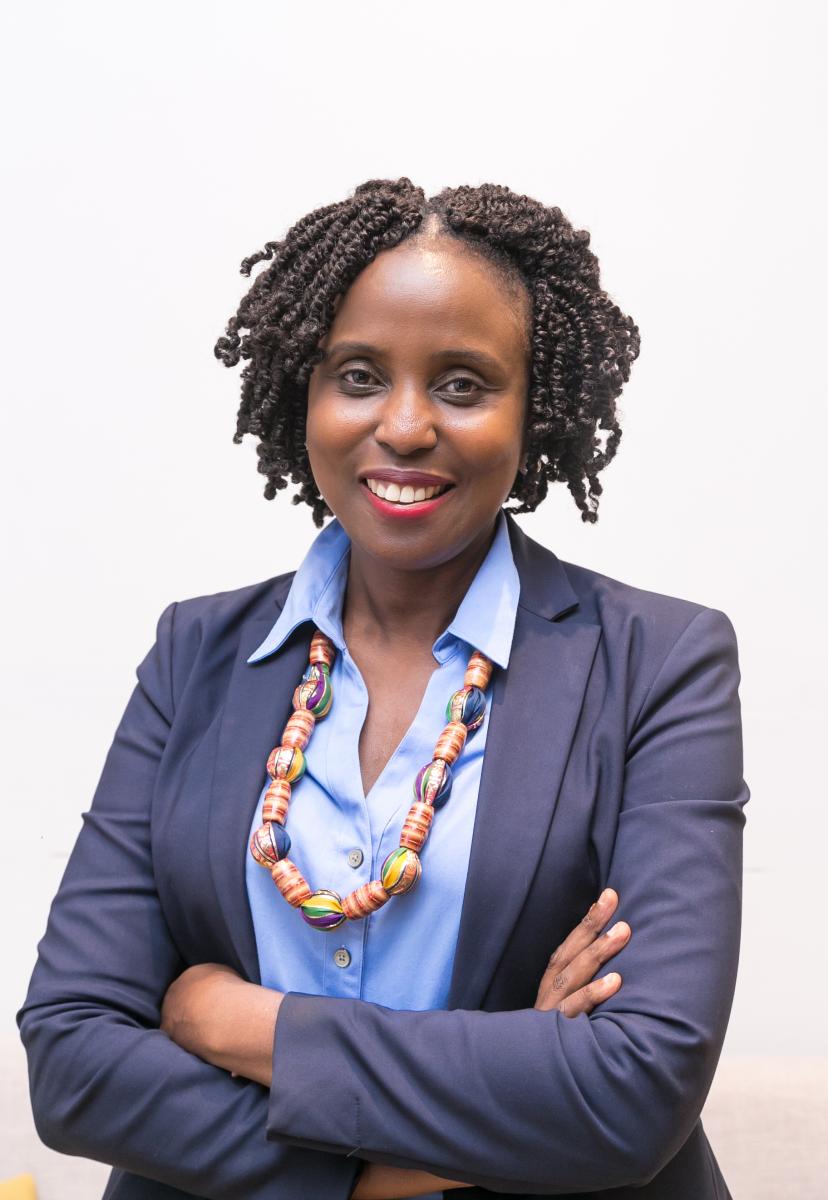 Catherine Kyobutungi
Catherine Kyobutungi
African Population and Health Research Center (APHRC)
Catherine holds a PhD (2006) in Epidemiology from the University of Heidelberg, and a Master of Science (2002) in Community Health and Health Management. She is the Executive Director at the African Population and Health Research Center (APHRC). She was formerly the Director of Research and has served APHRC in several leadership roles over the past decade, having joined as a Post-Doctoral Fellow in May, 2006.
Catherine is an Alumnus of the University of Heidelberg having completed her doctoral studies in Epidemiology in the then Department of Tropical Hygiene and Public Health, under the auspices of the Graduertienkolleg 793 in April 2006. She also obtained a Master of Science degree in Community Health and Health Management in 2002 from the same department. Prior to her graduate studies, Catherine studied Medicine at Makerere University, Kampala after which she worked as a medical officer at Rushere hospital, a rural health facility in Western Uganda for three years. Before and during her graduate studies, she was an Assistant Lecturer and later a Lecturer in the Department of Community Health at the Mbarara University of Science and Technology, where she was part of the response team during the Ebola outbreak in Uganda.
Catherine has served on numerous boards, panels, and expert groups, including the INDEPTH Network Board of Directors and the Advisory Council of the Carnegie African Diaspora Program at the Institute of International Education. She was the inaugural Chairperson of the Kenya Epidemiological Association. Her research interests include migrant health, community participation in health, and the epidemiology of non-communicable diseases.
Catherine is driven by the belief that Africa has the potential to solve its own problems and she tries to make her own contribution, however small.
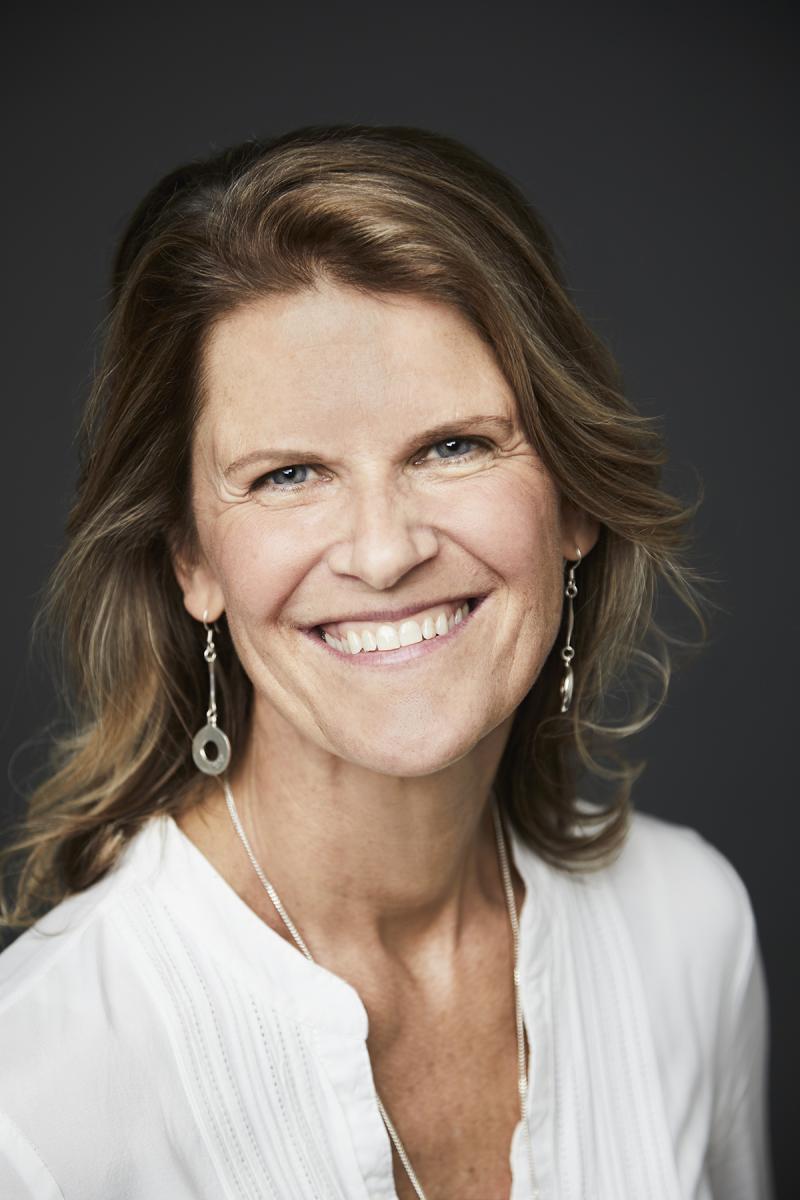 Rachel Kiddell-Monroe
Rachel Kiddell-Monroe
SeeChange Initiative
Rachel Kiddell-Monroe is a lawyer, a humanitarian, and an advocate. As a thought leader on reimagining humanitarian health crisis response, Rachel promotes values of humanity, justice, and solidarity in all aspects of global health. Unafraid to challenge the status quo, Rachel demonstrates how we can and must take a new approach in responding to health crises. The decolonized approach to humanitarian action she proposes is inclusive, participative, co-created and, most importantly, inspired and led by communities to address their health crises, their way.
To demonstrate a new way of doing, Rachel founded SeeChange Initiative in 2018. This Canadian charitable organization supports Indigenous and other vulnerabilized communities globally to co-create innovative CommunityFirst solutions, including the CommunityFirst COVID-19 Roadmap, to organize, prepare and respond to health crises.
This initiative builds on Rachel’s lifelong dedication to humanitarian work and speaking out against injustice. In 1989, she left her legal practice to work on Indigenous rights and East Timorese independence with grassroots organizations in Indonesia— a pivotal and formative experience. From there, Rachel joined Médecins Sans Frontières (MSF) and headed emergency humanitarian missions in Central and Eastern Africa as well as Latin America.
Witnessing the profound global inequity in access to medicines, Rachel became the founding President of Universities Allied for Essential Medicines. She recently served as a Director on MSF's highest governance platform supporting calls to reimagine humanitarian action through decentralizing governance. She continues to serve on MSF Spain’s board in particular advancing the anti-racist agenda and decolonisaiton discussions. As a Professor of Practice at McGill University, where she completed her LL.M in Bioethics, Rachel teaches annual courses on Decolonizing Humanitarian Action.
 Kelsey Lemon
Kelsey Lemon
Canadian Red Cross
Kelsey has worked the international development and humanitarian sector for almost 20 years, specializing in partnership management and capacity strengthening initiatives. Kelsey has managed projects and programs spanning from child protection, livelihoods, private-sector engagement, and organizational capacity building in 20+ countries in Africa, Asia and the Americas. Kelsey first joined the Canadian Red Cross in January 2016 as National Society Development and Partnership Advisor, responsible for supporting CRC’s global capacity strengthening programs, and working to improve CRC partnership management practices. In 2019, Kelsey led the development of the CRC Localisation Approach, to transform and modernize how CRC supports and enables local partners to lead humanitarian action in their respective contexts. In June 2020, Kelsey moved into the role of Senior Director, Global Programs, leading the portfolio of international recovery and long term capacity strengthening programs.
Kelsey currently hold the role of Vice-President, International Cooperation and Programs, at the Canadian Red Cross.
 Pamela Sabina Mbabazi
Pamela Sabina Mbabazi
World Health Organization
Dr. Pamela Sabina Mbabazi is a physician with more than 20 years’ experience working for the United Nations to support national public health programmes to implement interventions against infectious diseases. She has provided technical support vaccine preventable disease programmes at global level, in particular to Polio Eradication Initiative and Measles mortality reduction. She has also been involved in providing technical assistance responding to humanitarian emergencies in Africa and Asia.
Presently, she is working as a medical epidemiologist in the Department of Control of Neglected Tropical Diseases (NTDs), at the WHO headquarters in Geneva, Switzerland. Her current research interests include strengthening monitoring and evaluation for neglected tropical diseases programmes, particularly in vulnerable groups populations with a focus on women and children. She has authored several publications in peer reviewed journals, mainly related to methodologies for tracking public health gains for neglected tropical diseases and the effects of co-morbidities.
Pamela obtained a Masters in Health Systems Management from Roskilde University, Denmark and further advanced post graduate training in Epidemiology (Swiss Tropical Institute, Switzerland), human parasitology (Amsterdam Medical Center, The Netherlands), Mathematical modelling (London School of Hygiene and Tropical Medicine) and Evaluation of International Public Health Programmes (Johns Hopkins University, USA). Prior to her graduate studies, Pamela studied Medicine at Makerere University, Kampala, after which she worked as a medical officer in rural health facilities in Rwanda and West Nile, Uganda.
She is driven by a deep interest to consolidate and strengthen the evidence-base that demonstrates generational improvement in health and socio-economic outcomes among rural populations consequent to sustained public health interventions, especially in developing countries.
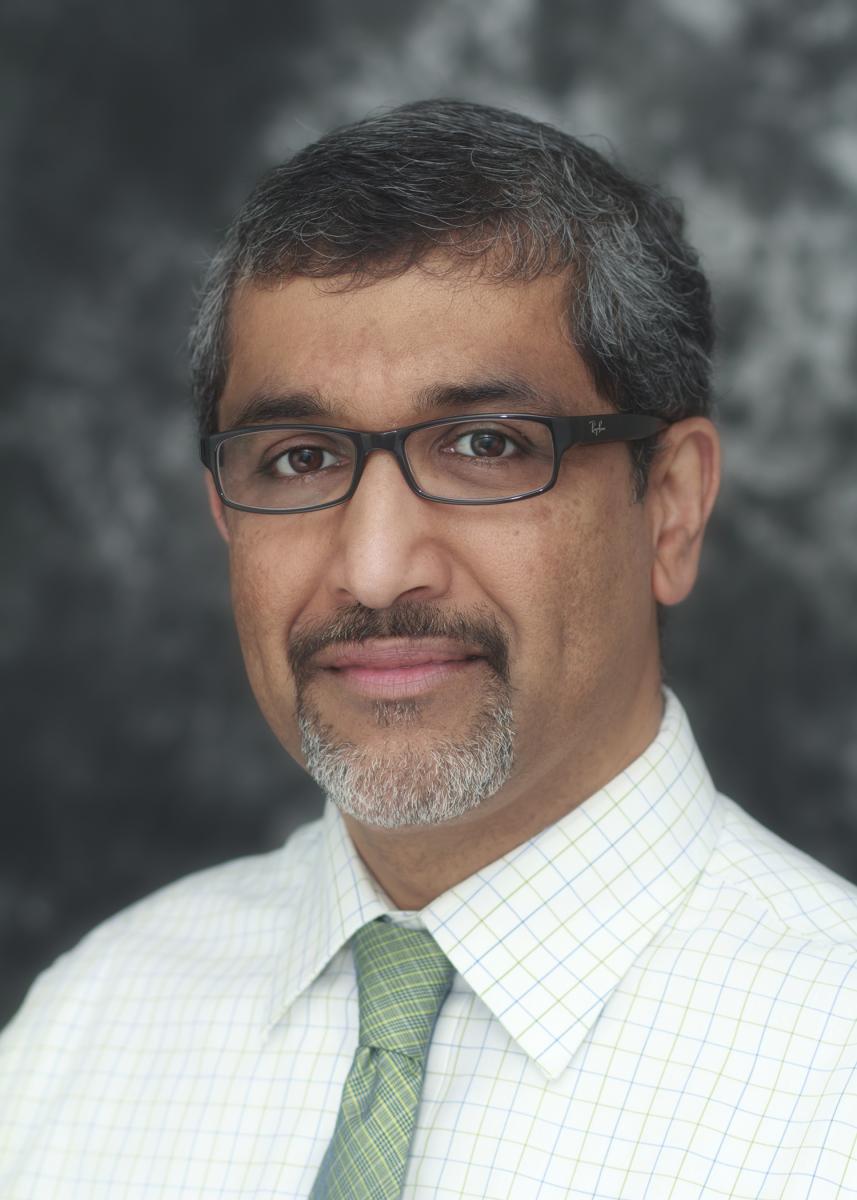 Shailey Prasad
Shailey Prasad
University of Minnesota
Shailendra (Shailey) Prasad, MD MPH is the Carlson Chair of Global Health and the Executive Director of the Center for Global Health and Social Responsibility at the University of Minnesota, Professor and Vice-Chair of Education at the Dept of Family Medicine and Community Health at the University of Minnesota, Adjunct Professor at the School of Public Health, and a Fellow at the Institute on the Environment at the University of Minnesota. He is also an honorary visiting professor at the University of Cape Town, South Africa, and Udayana University, Denpasar, Indonesia. He has been inducted into the Academy of Excellence in the Scholarship of Education at the University of Minnesota.
Dr. Prasad is the co-director of the Rothenberger Leadership Academy, a cohort-based leadership training program at the University of Minnesota. He is the co-lead of the CDC funded National Resource Center for Refugees, Immigrants and Migrants (NRC RIM) and the NIH/Fogarty funded Northern Pacific Global Health consortium. He is also a founding member and part of the leadership team of Advocacy for Global Health Partnerships.
Dr. Prasad has worked in underserved areas including rural areas for 3 decades as a clinician, has conducted health services research and has been engaged in education across disciplines. For the past 15 years he has been part of the Rural Health Research Center at the University of Minnesota. He is actively involved in the growth of academic primary care and global health research training across various parts of Africa, India, Thailand, and South America as part of Family Medicine Global Education Network (Fam Med GEN). He has also been involved in academic department strengthening and mentorship training across various universities.
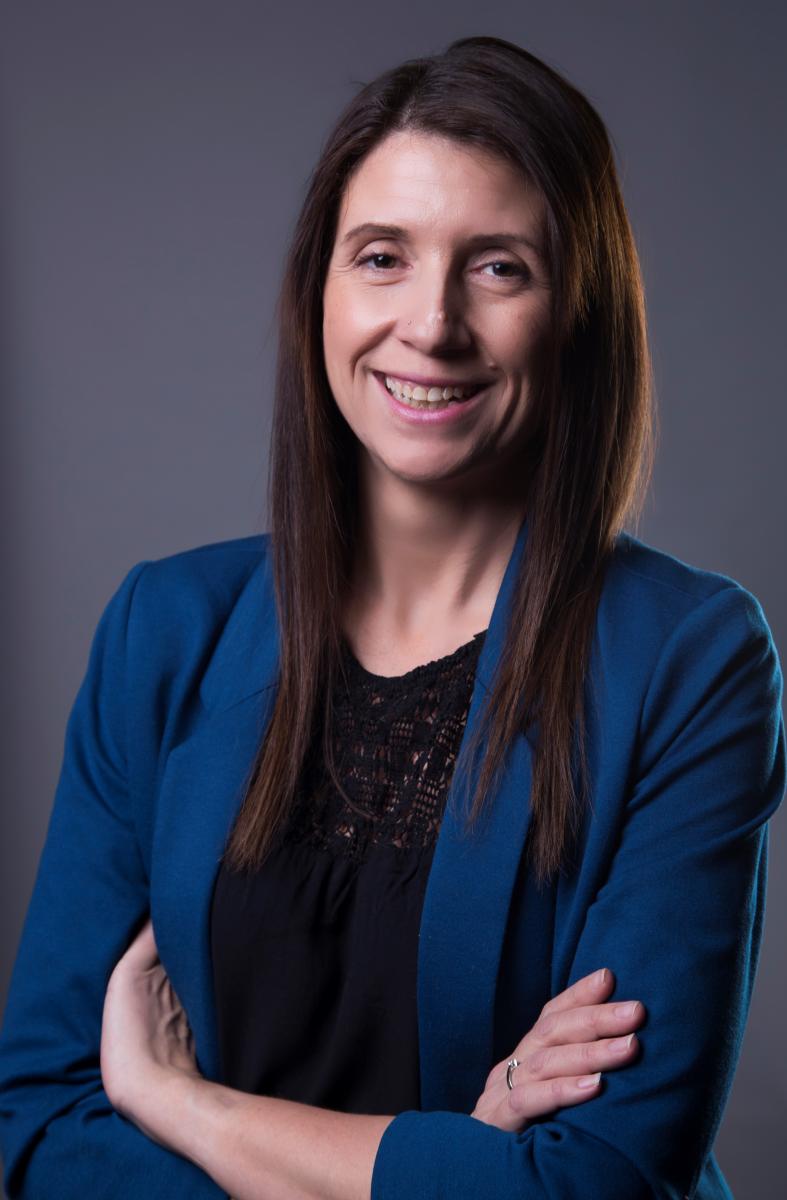 Pamela Roach
Pamela Roach
University of Calgary
Dr. Roach is an Assistant Professor in the Departments of Family Medicine and Community Health Sciences at the University of Calgary and is also the Director, Indigenous health education in the Office of Indigenous, Local and Global Health for the Cumming School of Medicine. She is a PhD health researcher and member of the Métis Nation of Alberta who has worked in a variety of academic and community health care settings, both in Canada and the UK, over the last 18 years. Her research focuses on Indigenous health; brain health and dementia in underserved populations; and developing anti-racism educational interventions.
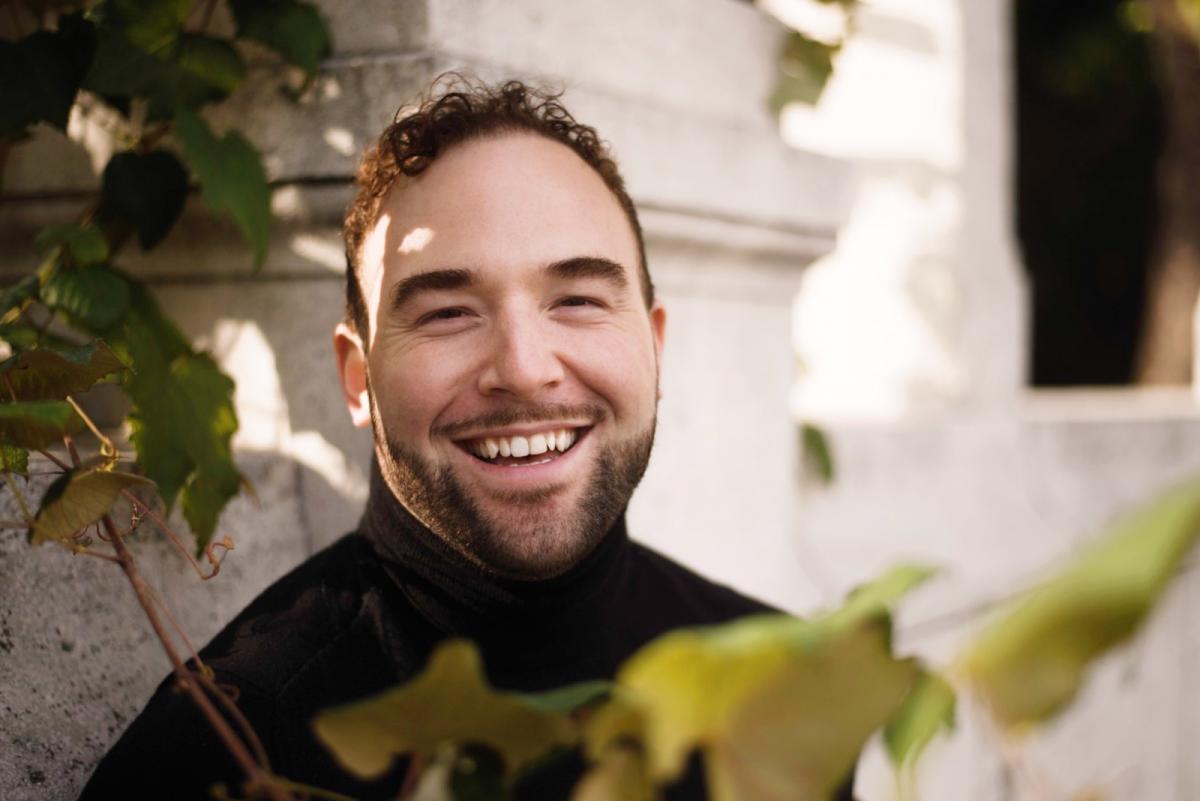 Max Seunik
Max Seunik
Young Diplomats of Canada
Maximillian ("Max") Seunik is a global health professional, impact investor, and civic community builder. Most recently, Max worked on Grand Challenges Canada's investments team, which directs capital to scaling up innovations with a proven impact on health in low- and middle-income countries. Max is also CEO of Young Diplomats of Canada and a Global Shaper of the World Economic Forum.
 Dr. Shams Syed
Dr. Shams Syed
Unit Head, Quality of Care at WHO Headquarters
He currently directly oversees the WHO national quality policy and strategy initiative as well as WHO technical work on quality in fragile, conflict affected and vulnerable settings. Dr Syed oversees WHO’s work on twinning partnerships for improvement and has led WHO work in this arena since 2009. He also oversees the WHO Global Learning Laboratory for Quality UHC that has been actively exploring the role of compassion in quality of care. His WHO career has provided an opportunity to work directly with over 30 countries across the world. He has recently provided strategic coordination to design the WHO COVID:19 Health Services Learning Hub. He has an academic interest in reverse innovation in global health systems and maintains teaching roles in his spare time, including at Johns Hopkins.
Dr Syed received his medical degree from St. George's, University of London, and practiced as a General Practitioner in the UK. He received postgraduate public health training at the University of Cambridge. Subsequently, he trained in Preventive Medicine at Johns Hopkins University, is US Board Certified in Public Health & Preventive Medicine and a Fellow of the American College of Preventive Medicine. His previous experiences prior to his current role include: coordinating a technical unit on quality systems & resilience at WHO HQ; acting as a strategic advisor on quality and UHC; designing and implementing a 5-year partnership program on patient safety in the African Region; working at the Pan American Health Organization with seven Caribbean countries on strengthening health systems and specifically surveillance systems; and working as the Advisor on Family and Community Health at WHO Trinidad and Tobago.
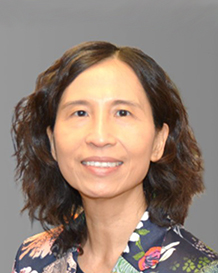 Theresa Tam
Theresa Tam
Government of Canada
Dr. Theresa Tam was named Canada's Chief Public Health Officer on June 26, 2017. She is a paediatric infectious disease specialist with expertise in immunization, emergency preparedness and global health security.
Dr. Tam obtained her medical degree from the University of Nottingham in the U.K. She completed her paediatric residency at the University of Alberta and her fellowship in paediatric infectious diseases at the University of British Columbia.
She is a Fellow of the Royal College of Physicians and Surgeons of Canada and has over 55 peer-reviewed journal publications in public health. She is also a graduate of the Canadian Field Epidemiology Program.
Dr. Tam has held several senior leadership positions at the Public Health Agency of Canada, including as the Deputy Chief Public Health Officer and the Assistant Deputy Minister for Infectious Disease Prevention and Control. During her 25 years in public health, she provided technical expertise and leadership on new initiatives to improve communicable disease surveillance, enhance immunization programs, strengthen health emergency management and laboratory biosafety and biosecurity. She has played a leadership role in Canada's response to public health emergencies including severe acute respiratory syndrome (SARS), pandemic influenza H1N1 and Ebola.
Dr. Tam has served as an international expert on a number of World Health Organization committees and has participated in multiple international missions related to SARS, pandemic influenza and polio eradication.
